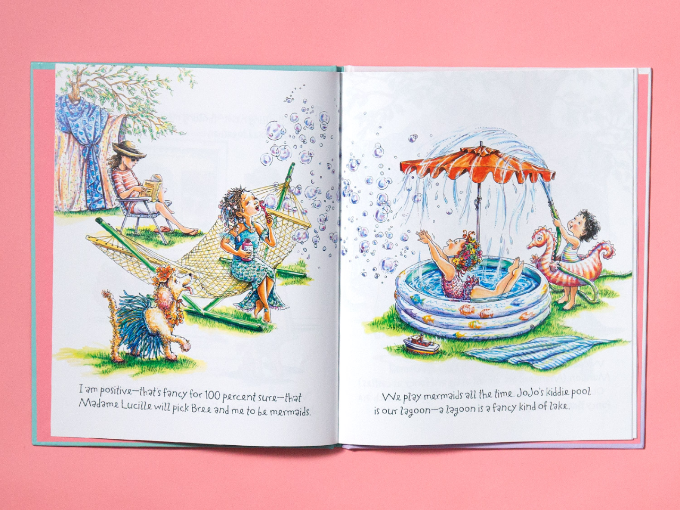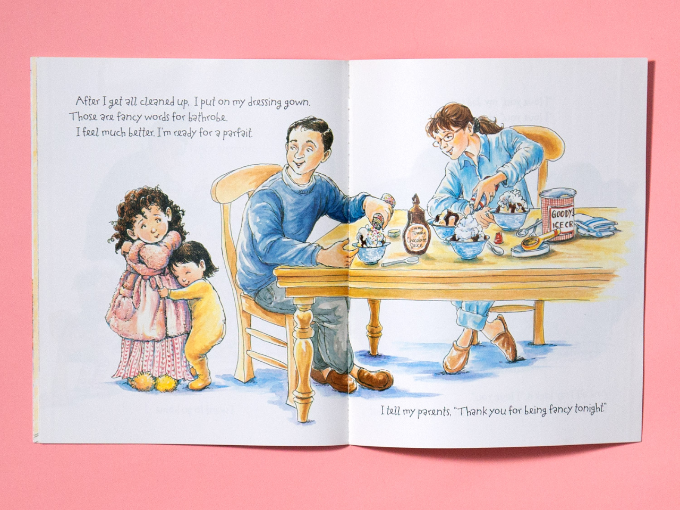Being the mom of a 7-year-old girl means I’m at war with most things pink and frilly. To some, this might seem like an odd approach to raising a daughter, but when the world continually tells girls that they must always be pretty, polite, and solely interested in princesses and makeup, it’s normal to intentionally look for ways to counteract that message. My daughter has been exposed to her fair share of Disney princesses and classic fairy tales, but when I choose new books for us to read, I try to avoid stories that push stereotypical ideas about what it means to be a girl. So you can imagine the apprehension I felt when my daughter developed a fascination with a character called Fancy Nancy.
At first glance, Fancy Nancy is the definition of a “girly-girl.” On the covers of the books, she’s often wearing dresses, heels, and sparkles. The “A” in the title Fancy Nancy is topped with a crown. I was fully prepared to open the first book and find another mundane story about a little girl whose biggest passions are tutus and jewelry. But that’s not what I found at all, and I’ll be the first to admit that I was totally wrong about Fancy Nancy. Here’s why:
1. The books are a mini vocabulary lesson
Fancy Nancy talks in her very own fancy language that mixes in French words, multi-syllable words, and complex phrases. Throughout the books, she translates her own “fancy” language for young readers, which results in kids being exposed to and gaining an understanding of new words and phrases without even realizing it. “We play mermaids all the time,” Nancy explains in Fancy Nancy and the Mermaid Ballet. “Jojo’s kiddie pool is our lagoon — a lagoon is a fancy kind of lake.”






